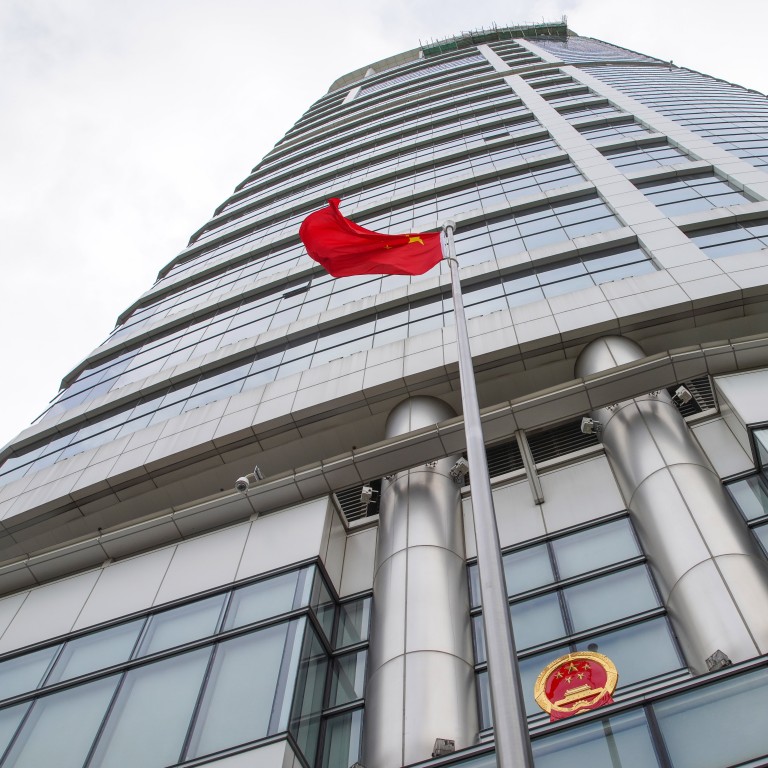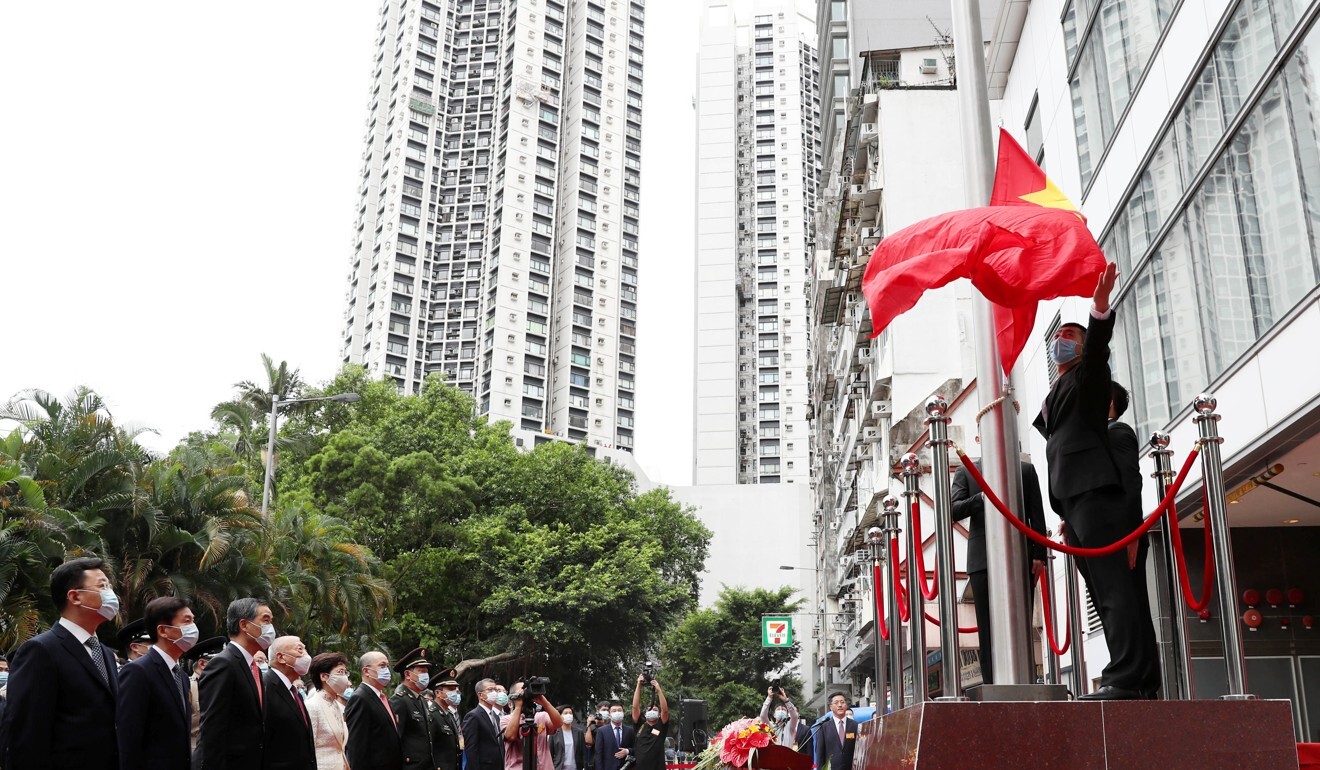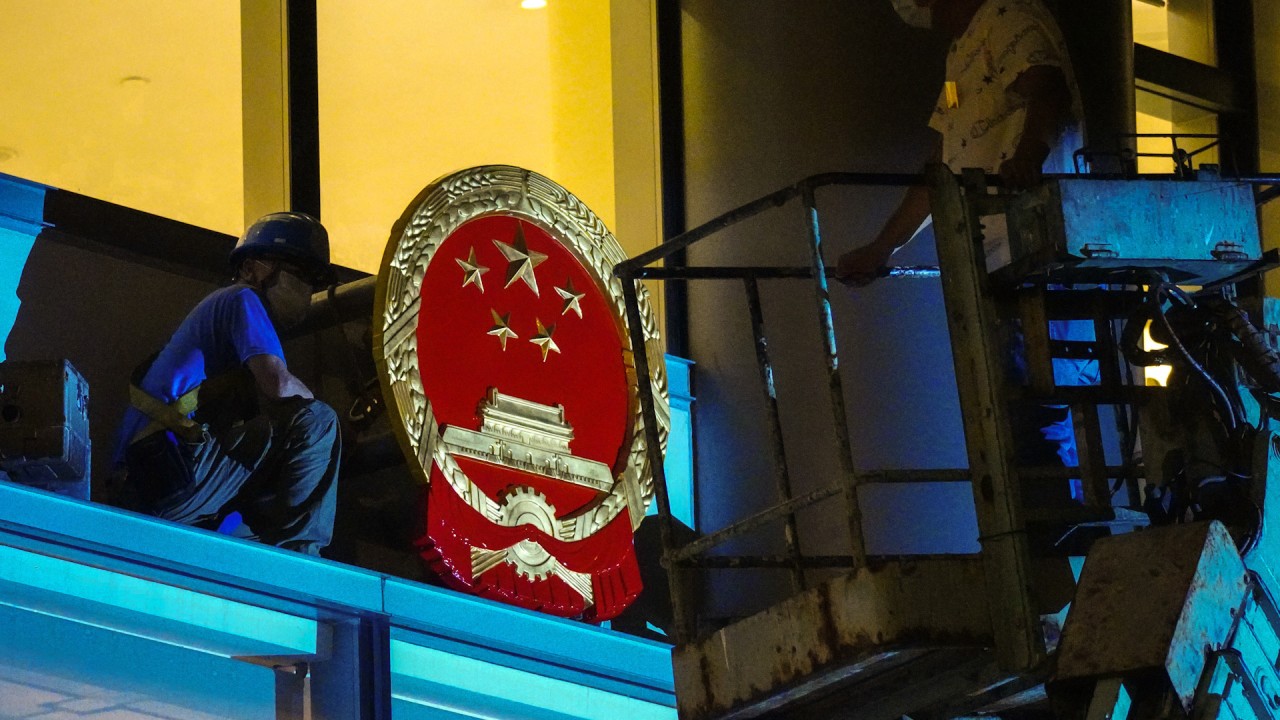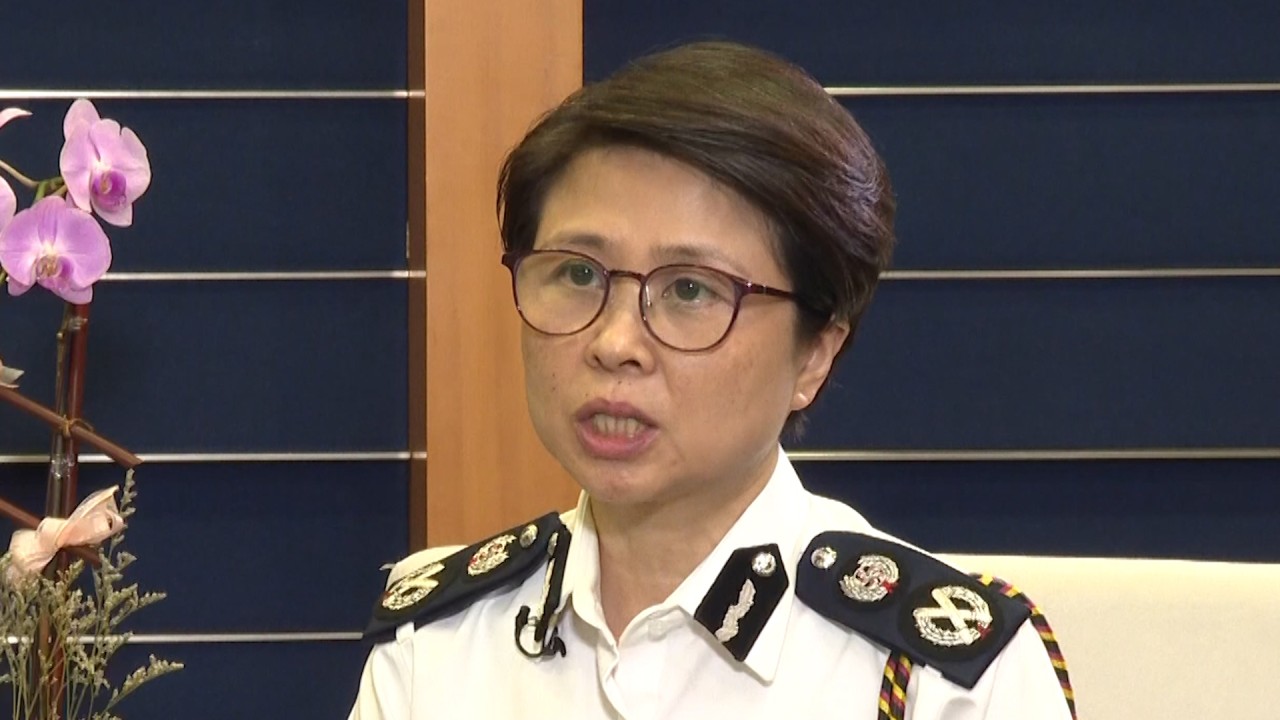
Hong Kong national security law: new head of Beijing office in city vows agents will not trample on people’s rights
- Zheng Yanxiong says law was enacted for well-being of city’s residents, and office will operate in ‘accordance with the law’
- Flag-raising ceremony marks opening of temporary base for Office for Safeguarding National Security in Causeway Bay hotel
Beijing on Wednesday inaugurated its new national security office staffed by more than 200 people in Hong Kong, with its director pledging his agents would not infringe on residents’ rights amid concerns about the extent and implications of their sweeping powers.
Zheng Yanxiong, known for his tough style, tried to strike a reassuring note at the opening of the temporary headquarters in Causeway Bay for the Office for Safeguarding National Security, saying the controversial law tailor-made for the city had been enacted “for the well-being of the people”.
“We will fulfil our responsibilities and exercise our power to defend national security firmly in accordance with the law,” Zheng said, adding his agents would not trample on Hongkongers’ rights and would exercise their powers in accordance with the law.

The new office is required under the national security law drafted by China’s top legislative body to oversee its implementation against acts of secession, subversion, terrorism and collusion with foreign forces.
But legal scholars and opposition politicians have voiced concerns over what they see as a draconian new regimen, pointing to the expansive powers granted to the new agency. While mainland agents will have to observe local laws, they will not be under Hong Kong jurisdiction while carrying out their duties.
Zheng was flanked by his deputies, Li Jiangzhou and Sun Qingye, Beijing’s liaison office director Luo Huining and Hong Kong leader Carrie Lam Cheng Yuet-ngor at the flag-raising ceremony outside the office at the Metropark Hotel – now converted to bear a national emblem – along with other local officials and pro-establishment heavyweights.
Assistant public security minister Chen Siyuan, China’s head of home security law enforcement, was also present, but he did not deliver any official speech.

00:34
China’s emblem goes up as Hong Kong hotel becomes Beijing’s national security office in city
Luo called the new office “the gatekeeper of national security”, saying it would abide by local laws and would not infringe on the legal rights of anyone or any organisation.
He said those who questioned the judicial system and rule of law in mainland China were deliberately trying to cause “unnecessary panic and fear”, and the legal system across the border was a sound one.
“Many foreigners in China think that China gives them the biggest sense of safety,” Luo said.
Chief Executive Lam described the opening of the office as a “historical moment”, saying it would provide advice and suggestions on major strategies and policies concerning national security in Hong Kong.
The local committee on national security that she chaired would set up a “coordination mechanism” with the office to strengthen information sharing and coordination of operations, she said.
The fully barricaded and guarded office is opposite Victoria Park, a rallying point for mass protests, and near the predominantly middle-class residential neighbourhoods of Tin Hau and Tai Hang.
An official source said the choice of location showed the office was presenting itself as “open and above board” to Hong Kong people.
Hong Kong national security law official English version:
“It is very important that the office can be seen by Hong Kong people,” the source said. “It is carrying out official duties on China’s land according to the law; there is no need to hide.”
Another advantage of the building is that is run by state-owned HK CTS Hotels, making it easier to arrange the quick handover to the new tenants, according to the source.
“This is an optimal choice, balancing various considerations including public image, safety, security, accessibility, quick turnaround time and housing needs of the new officers coming from the mainland,” the source said, adding the office would continue to look for a permanent location in the future.
The office will have about 200 to 300 staff but not all are coming fresh from the mainland, according to another source.
“Some who are already in Hong Kong will report to the office from now on,” the insider said.
It is understood that most of the 266 rooms in the hotel have been turned into offices, while others will serve as dormitories for new officials.

01:09
Hong Kong needs Beijing approval to handle national security law cases in three situations
A Tin Hau resident for more than 30 years said having the national security office nearby made her feel safe. “Although there was heavy police presence in the area for the past few days, I felt protected,” she said.
But a 40-year-old music teacher who lived and worked nearby said the office made her “very uncomfortable” and she felt “threatened”.
“I don’t like that it suddenly appeared in a residential area,” she said. “They should have made an announcement about the new office. It shouldn’t have been so secretive.”
Before taking on his new role as head of the office, Zheng, 56, was a former secretary general of the Communist Party’s Guangdong province branch with a hardline reputation, best known for his crackdown on protests that erupted in the village of Wukan in 2011.
Democratic Party lawmaker Lam Cheuk-ting said Zheng’s “empty promises” could not allay public concerns as the law’s many provisions violated civil liberties guaranteed by the city’s mini-constitution.
Hong Kong national security law full text
“If mainland agents directly handle cases and extradite suspects back to the mainland, their basic rights cannot be safeguarded at all,” Lam said, referring to Beijing’s power to exert jurisdiction over certain national security cases.
Activist Nathan Law Kwun-chung, who left the city ahead of the passage of the law, published an open letter urging leaders of seven countries – including Britain, the United States and Australia – to suspend their extradition agreement with Hong Kong.
The agreements allowed authorities to transfer any foreign citizen to the city on any criminal charge under the “broad and capacious provisions” of the national security law, Law said, arguing they should be suspended or terminated until the new legislation was reviewed or abolished.
Additional reporting by Natalie Wong



